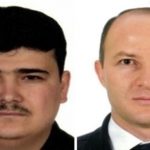By Giran Ozcan
Twenty years ago today, Turkey announced Kurdish rebel leader Abdullah Öcalan had been captured in Kenya and brought back to Turkey. The Kurdistan Workers’ Party (PKK), the organisation he led, had been fighting the Turkish government for 15 years, seeking national liberation for Turkey’s Kurdish minority. When the PKK was established, it was illegal in Turkey to give a child a Kurdish name, to celebrate Kurdish holidays, or to speak Kurdish in public. As the Kurds of Iraq gained international support in their fight against Saddam Hussein’s brutal dictatorship, Turkey’s strategic location and NATO membership caused their struggle against the same conditions on the other side of the Sykes-Picot border to be internationally criminalised.
The United States initially denied any participation in Öcalan’s capture. Subsequent reporting proved otherwise: according to a Clinton administration official quoted in The New York Times, the United States had worked to “figure out where he was, where he was going, and how we might bring him to justice.”
Öcalan was tried for treason and sentenced to death, a sentence that was commuted to life in prison when Turkey abolished the death penalty as part of its efforts to join the European Union. For 20 years, he has been held on the prison island of İmralı, surrounded by hundreds of armed guards and forbidden even the basic rights that Turkish law affords to prisoners.
For most of that time, the United States had little reason to concern itself with Turkey’s Kurdish movement. U.S. policy towards the Kurds continued to concern itself with groups in Iraq that had little affinity for the struggle of their brothers and sisters in Turkey, until the war against Islamic State (ISIS) brought the United States into an alliance with the Syrian Kurdish People’s Protection Units (YPG), that, while a politically and militarily distinct entity, takes its ideological inspiration from Öcalan’s writings.
That alliance led to the liberation of 30 percent of Syrian territory, including the former ISIS capital of Raqqa. Right now, the YPG-led Syrian Democratic Forces (SDF) have cornered the terror group, which once controlled a region the size of Britain, in an area smaller than the sliver of land in the northern Syrian town of Kobane that the YPG held in 2014 when its odds looked the worst.
News of the final territorial defeat of ISIS could come at any time, yet Turkish support for Syrian Islamists and animosity towards the SDF threatens to open a new, bloody, and destabilising chapter in the Syrian conflict.
U.S. President Donald Trump’s jarring announcement of the withdrawal of U.S. personnel from northeast Syria and Turkish President Recep Tayyip Erdoğan’s subsequent threats against the region have left policymakers scrambling for a solution that will ensure enduring stability and security.
Such a solution will have to address a concern that has been swept under the rug for years – the connection between Erdoğan’s aggression in Syria and the conflict within Turkey’s borders. Calling for peace in Turkey would have a positive effect on the prospects for enduring peace and stability in the region, even after U.S. troops come home.
This demand is right, legitimate, and well within U.S. interests. The PKK today is not the same organisation that it was in 1999. It no longer seeks the establishment of a Kurdish nation-state – rather, it calls for Kurdish autonomy in Turkey, and recognises the need for all peoples to live together in mutual freedom, a concept known as the ‘democratic nation’.
It has proven its willingness to sit down and discuss a peaceful resolution to the nearly 40-year conflict. The ideas Öcalan wrote about from his prison cell— women’s liberation, direct democracy, care for the environment— have stabilised and democratised northeast Syria in the midst of eight brutal years of war.
Turkey, too, is a starkly different place. The most recent years of Erdoğan’s rule have plunged the country into autocracy. People queue for state-subsidised food staples due to economic mismanagement, an issue Erdoğan addressed by asking hungry citizens if they understood the cost of his wars.
Nine elected members of parliament from the pro-Kurdish People’s Democratic Party are in prison, charged with terrorism for routine speeches and statements. Thousands of journalists, academics, activists, and dissidents have been jailed or forced to flee the country, and military operations in Turkey’s southeast that razed Kurdish cities have left tens of thousands internally displaced.
In this atmosphere, it is easy to forget that just six years ago, Erdoğan took the brave step of becoming the first Turkish leader to engage in talks with the PKK. That process was supported by 81 percent of the Turkish public — Turks and Kurds alike. Before its breakdown, discussions of democratisation, economic development, and the possibility of a new future were vibrant on both sides. Turkey even cooperated with its sworn Syrian Kurdish enemies, engaging in diplomacy and even joint military operations— a state of affairs certainly preferable to the threats and clashes taking place today.
We know that U.S. pressure works in checking Erdoğan’s most dangerous impulses, and it may well work again in encouraging him to return to the negotiating table. The United States could easily play the role it has played in negotiations from Yugoslavia to Northern Ireland, holding all involved accountable for their actions, their promises, and their goals. There would be worse places to start than a clear American call for the release of all political prisoners— including Öcalan— a ceasefire in Turkey, and a moratorium on Turkish action in Syria.
Twenty years after the United States aided in the escalation of Turkey’s war on the Kurds, it has an unprecedented chance to help end it, and to take a stand on the right side of history.
Source: Ahval News



